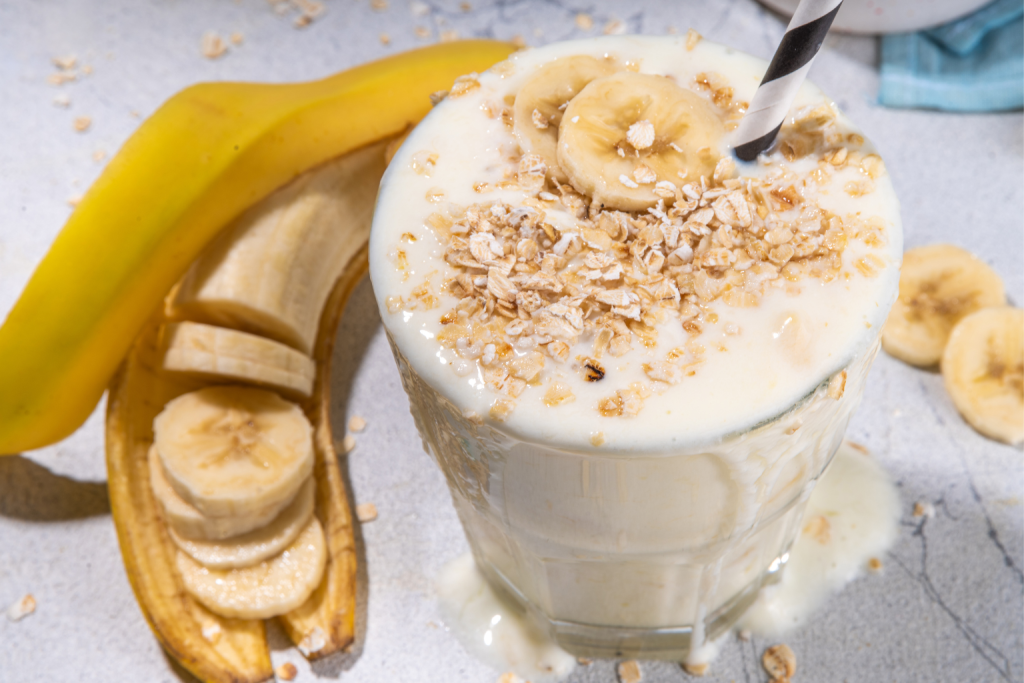
Parents often focus on bedtime stories, calming routines, and cozy bedrooms when trying to improve their toddler’s sleep. But one area that’s often overlooked is what happens at the dinner table. Evening nutrition can play a surprisingly big role in how easily toddlers drift off, how well they sleep, and whether they wake up in the middle of the night.
Food is fuel, and just like adults, children’s bodies respond to what they eat. Too much sugar late in the day, heavy meals, or stimulating snacks can leave them restless. On the other hand, the right balance of nutrients can calm their bodies, regulate blood sugar, and support natural sleep cycles
The Link Between Nutrition and Sleep
The science of sleep tells us that melatonin, the body’s natural sleep hormone, is influenced not just by light and routines but also by diet. Certain foods provide the building blocks for melatonin and serotonin, which are key to relaxation.
For toddlers, steady blood sugar levels are especially important. A sugary dessert right before bed might lead to a burst of energy followed by a crash, which can wake them up. Instead, foods with complex carbs, proteins, and natural calming compounds give the body steady fuel to stay asleep.
Think of nutrition as part of the bedtime toolkit. Just like you dim lights and read stories, you can prepare the body for rest through food choices.
Foods That Support Toddler Sleep
Some foods contain natural compounds that support calmness and rest:
Bananas: Provide magnesium and potassium, which help relax muscles.
Warm milk: Contains tryptophan, an amino acid that supports melatonin production.
Oats: A natural source of melatonin and complex carbs.
Yogurt: Offers calcium, which the brain uses to process tryptophan.
Turkey or chicken: Light proteins that won’t overload digestion but still aid sleep hormone production.
Including these foods in the evening routine can make a noticeable difference in how toddlers settle.

Foods to Avoid Before Bedtime
Just as there are helpful foods, there are also troublemakers. These can overstimulate toddlers and make it harder to settle down:
Sugary snacks (cookies, candies, chocolate milk) — lead to energy spikes.
Caffeinated foods/drinks (some chocolates, flavored teas, sodas) — act as stimulants.
Greasy or heavy meals — harder to digest and may cause discomfort when lying down.
Spicy foods — can cause stomach upset and restlessness.
Parents don’t need to ban these entirely but should aim to serve them earlier in the day. A peaceful bedtime environment is much easier to maintain when digestion is calm and steady.
Timing Matters: When to Serve Evening Snacks
It’s not just what your toddler eats but when. Serving dinner too late, or a snack too close to bedtime, can interfere with rest.
Experts suggest:
Dinner: 2–3 hours before bedtime.
Bedtime snack (if needed): 30–60 minutes before lights out.
A light snack helps toddlers avoid hunger pangs during the night without overloading their system. Balance is key, enough to satisfy, but not so much that digestion keeps them awake.

Hydration and Sleep Quality
Another overlooked factor is hydration. Toddlers who drink too much fluid right before bed may wake up for bathroom trips or discomfort. On the flip side, being dehydrated can also disrupt sleep.
The solution is to balance water intake throughout the day, tapering off in the evening. Offering sips instead of full cups close to bedtime prevents sleep interruptions. Warm, calming drinks like milk can be part of the routine, but avoid juices with added sugar.
Building a Nutrition-Based Routine
Toddler bedtime nutrition works best when it becomes part of a predictable pattern. Here’s an example routine:
Dinner: A balanced meal with protein, veggies, and whole grains.
Wind-down play and bath.
Snack: A banana with yogurt or a small bowl of oatmeal.
Bedtime ritual: Story, lullaby, dim lights.
By pairing food with a healthy sleep routine, you create multiple signals to the body that bedtime is near.

Common Questions Parents Ask
Q: Should toddlers eat right before bed?
A: A light snack is fine, but avoid large meals.
Q: Are supplements necessary?
A: Most toddlers can get sleep-supporting nutrients from food. Always consult a pediatrician before giving supplements.
Q: What if my toddler refuses healthy foods?
A: Keep offering variety and model healthy eating yourself. Toddlers often need multiple exposures before accepting new foods.
Conclusion
Nutrition may not be the first thing parents think of when tackling sleep struggles, but it’s one of the most powerful tools for shaping a peaceful bedtime environment. By choosing foods that calm rather than excite, serving them at the right times, and weaving them into a predictable nightly rhythm, parents can help toddlers fall asleep faster, stay asleep longer, and wake up happier.
Toddler bedtime nutrition isn’t about restriction, it’s about balance. With small, mindful adjustments, you can transform both evenings and mornings for the whole family.
